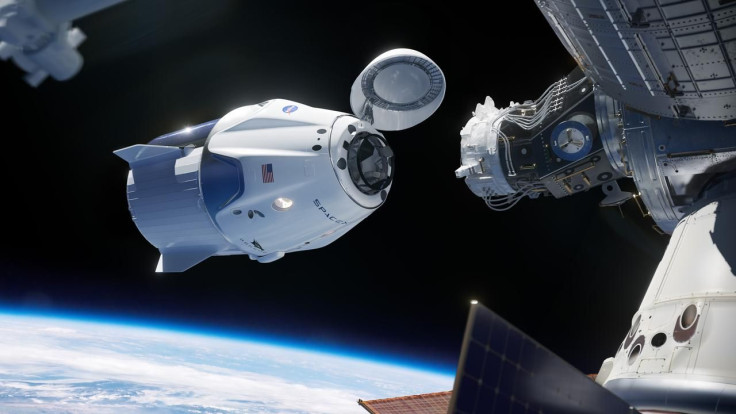SpaceX Test Fires Crew Dragon Rocket For First Human Mission To ISS

SpaceX recently carried out a static fire test for the Falcon 9 rocket will carry the Crew Dragon capsule for an upcoming mission to the International Space Station (ISS). This mission will serve as the company’s first human mission with the capsule.
On Aug. 29, SpaceX fired up the boosters of its Falcon 9 rocket at a launch test facility in McGregor, Texas. According to a statement from the company, the static fire test for Falcon 9 was successfully completed.
Douglas Hurley and Robert Behnken, the NASA astronauts who have been selected as the crew for the Crew Dragon’s upcoming mission, congratulated SpaceX for the rocket’s successful test.
Congratulations to the Team! @AstroBehnken and I are looking forward to that ride to orbit. https://t.co/dERir5lenc
— Col. Doug Hurley (@Astro_Doug) August 30, 2019
Behnken said he wished he and Hurley were able to witness Falcon 9’s static fire test.
Really wish @Astro_Doug and I could have joined @SpaceX's McGregor team for this! Huge step on the path to bringing human spaceflight back to @NASAKennedy and the Florida coast, we won't miss engine start next time! https://t.co/tWnmnNOGnQ
— Bob Behnken (@AstroBehnken) August 30, 2019
The Crew Dragon’s upcoming mission, dubbed as Demo 2, will serve as the capsule’s second visit to the ISS. The first mission, known as Demo 1, was launched on March 2 and was an unmanned flight to the space station.
Demo 2 was originally planned to launch in July but was delayed due to an accident that occurred in April during a static fire test. The incident destroyed the capsule and forced NASA and SpaceX to postpone the mission in order to ensure the safety of everyone involved.
“NASA and our partners want to fly astronauts as quickly as we can without compromising the safety of our astronauts and always will give safety precedence over schedule,” NASA said in a statement.
“However, our schedules matter. The NASA Administrator has directed all programs in the Human Exploration and Operations Directorate to reexamine flight dates once new leadership is in place to deliver realistic schedule plans,” the agency added.
Crew Dragon’s Demo 2 mission is expected to launch in November. According to NASA, this mission will serve as the beginning of the agency’s partnerships with commercial spaceflight providers.
“This is a pivotal time for NASA and our partners,” the agency stated. “The final phase of our development and testing is critical to the safety of our astronauts and the success of our mission – regular, reliable and cost-effective human transportation to and from the [ISS] on commercially-owned and operated American space systems.”
© Copyright IBTimes 2024. All rights reserved.





















